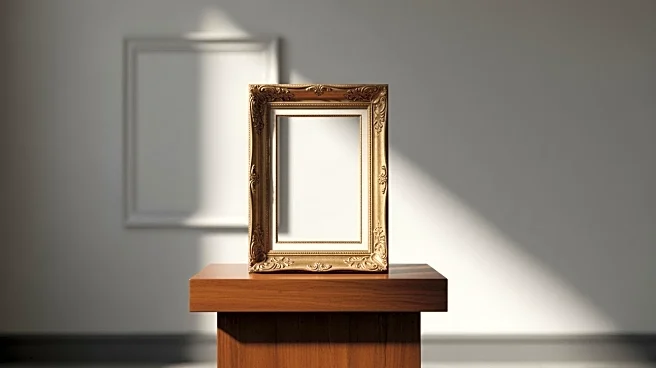What's Happening?
A proposed tax on art ownership in France has drawn significant criticism from the art community, including major organizations like the Comité Professionel des Galeries d’Art (CPGA) and Art Basel. The
legislation, which would impose a wealth tax on artworks, was put forward by Jean-Paul Matteï and Philippe Brun and has been provisionally approved by French MPs. The proposal aims to transform the existing tax on immovable property into a tax on 'unproductive wealth,' encompassing art. Critics argue that this could lead to a relocation of art transactions and storage to countries like Switzerland, the U.S., or the U.K., potentially harming France's position as a leading art market hub.
Why It's Important?
The proposed tax could have far-reaching implications for the French art market, which is a significant contributor to the European Union's art market value. By potentially driving art transactions out of France, the tax could weaken the country's competitive edge in the global art market, especially post-Brexit. This move could also impact artists and galleries financially, as they may face increased costs and reduced market activity. The opposition from the art community highlights the potential economic and cultural consequences of the tax, emphasizing the need for policies that support rather than hinder the art sector.
What's Next?
The bill is set to be reviewed by the French senate and a joint parliamentary committee before returning to the National Assembly. The art community, including over 1,500 artists who have signed a petition against the bill, is mobilizing to defend the tax exemption for artworks. The outcome of these legislative processes will be closely watched by stakeholders in the art market, as it could set a precedent for how art is taxed in other countries. The debate may also influence future policy decisions regarding the taxation of cultural assets.










